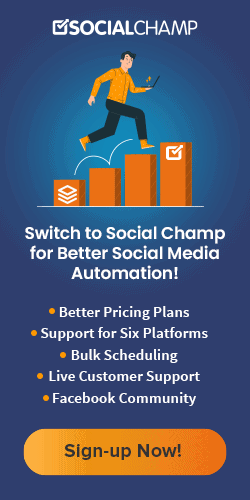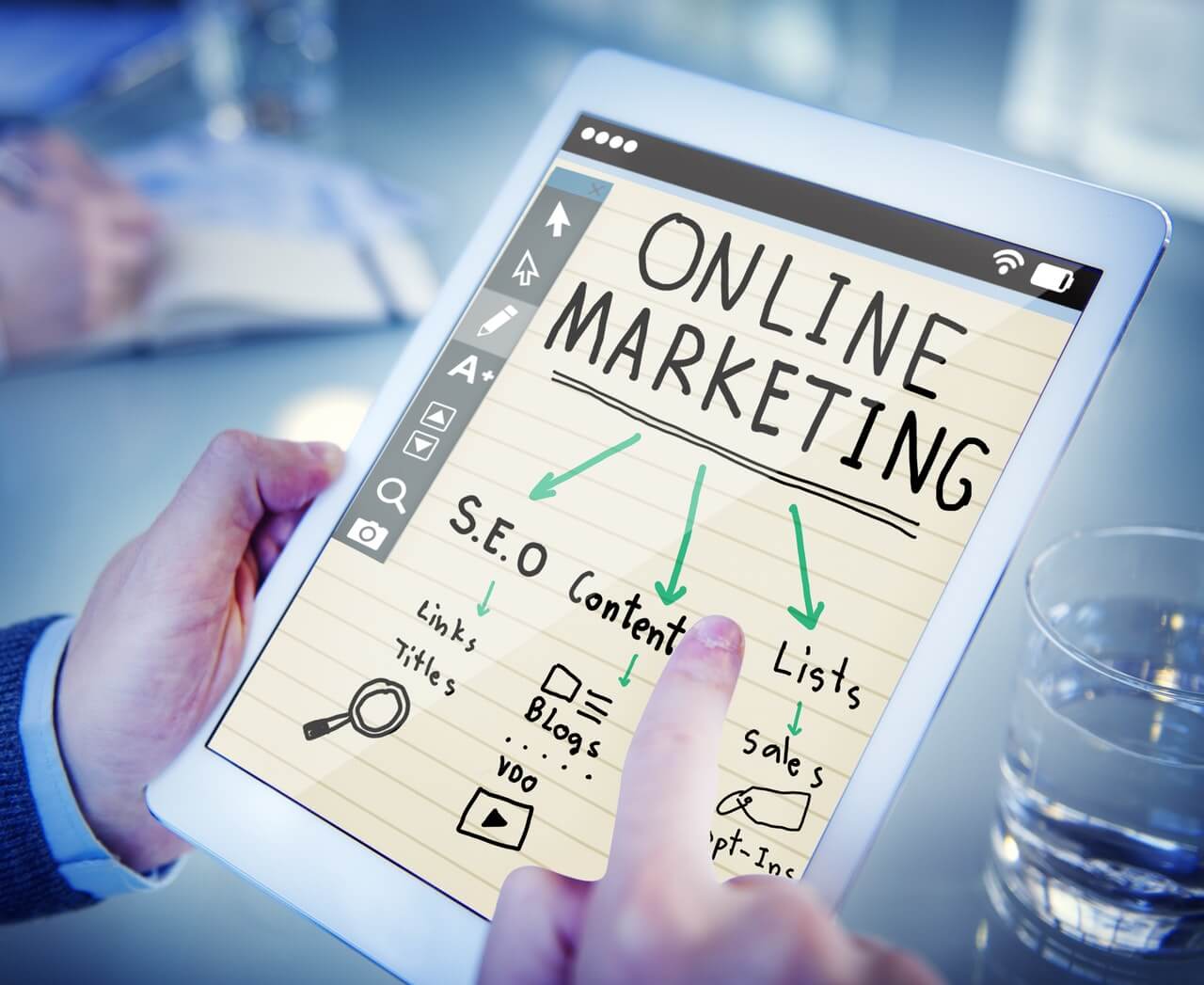There’s a lot of talk about Artificial Intelligence (AI) and its implications. People fear losing their jobs, being redundant, and even dreaming up some Terminator-esque scenarios where AI takes over the planet. Whatever the future holds, it’s no secret that AI is already a part of most of our lives and has already penetrated several industries.
So the question we’re trying to answer today is: Does AI kill productivity and drive instead of boosting it?
We went out and interviewed some experts on the topic and created a compilation so you don’t have to snoop around for the answers. In this blog, you’ll find first-hand experiences, insights, and opinions on how AI does (or doesn’t) affect productivity and drive.
So, without further ado, let’s dive in!

Mitchell Cookson
Co-founder of AI Tools Inc
![]()
Integrating artificial intelligence into our professional lives is a double-edged sword that can improve or hinder productivity, depending on how it is implemented. On one hand, AI has the potential to streamline repetitive tasks, free up a lot of time for creative and strategic thinking, and provide valuable insights.
However, there is also a flip side to this convenience. Artificial intelligence’s efficiency can sometimes undermine the intrinsic motivation that comes from engaging in highly challenging and hands-on activities. When your day-to-day activities are oversimplified, a sense of detachment and a lack of fulfillment can crip in.
The opportunity to struggle, learn, and grow through “dirty” work diminishes. Consequently, you experience a massive decrease in your work drive and become more disconnected from the core of your profession. Therefore, it is important to reframe AI’s role in the work environment and acknowledge that the technology is not a replacement but an augmentation of human capabilities.

Michael Kiel
Founder of Boat Planet
When artificial intelligence takes over tedious tasks, it gives professionals more time to work on the things that matter most. This change boosts productivity as employees can think strategically, solve problems creatively, and innovate. However, the difficulty arises when there is a lack of drive due to reduced achievement from dealing with and overcoming challenging tasks.
Continuous learning and setting new objectives are vital for motivating employees to perform. For instance, organizations should offer challenging assignments to foster growth and satisfaction within their workforce. In addition, the successful integration of AI requires adequate preparation.
To identify their unique needs concerning AI adoption, companies must conduct audits while involving all stakeholders through open communication. It is also paramount to ensure alignment with existing systems and processes before rushing into adopting this technology. If adopted correctly and well planned for, AI has great potential to increase organizational productivity and employee drive.

Grzegorz Robak
CEO of Evisa Express
I’ve seen AI shake things up in academia and industry. It’s a game-changer, but it’s not here to replace us but to amplify what we can do.
Think of AI as a supercharged tool in your kit. The trick is finding the right balance between human skills and AI power. Before you start automating, get your hands dirty. Learn the ropes the old-fashioned way. Why? Because understanding the nuts and bolts helps you use AI more effectively.
Don’t just push buttons. Dive into how AI ticks, what it’s good at, and where it falls short. This knowledge lets you catch its mistakes and use it to its full potential. Productivity and motivation? It’s all in how you approach AI. If you’re using it to skip the hard work, you’re in for trouble. But if you’re using it to tackle bigger challenges, you’ll find yourself more fired up than ever.
In my work with international cooperation and visa processing, I’ve seen AI open new doors. The people who shine see AI as a partner, not a replacement. They dig in, learn the ropes, and then use AI to aim higher. It’s not about keeping pace with AI. It’s about staying curious and ready to learn. That’s how you stay ahead in this fast-changing world.

Abhinav Girdhar
Founder of Appy Pie
There is a positive and a negative side to each side, and in this case, the integration of AI into our professional lives might have a mixed effect on people’s productivity. By automating repetitive and time-consuming tasks, AI helps you save so much time, which allows people to focus on more mindful and creative tasks.
On the downside, AI simplifies and streamlines tasks, so some people may feel less challenged, leading to a decrease in motivation and engagement. This can result in a decline in skill development as people rely more on AI to do the thinking for them.
Additionally, using AI can create anxiety about job security, as it takes over tasks that humans traditionally did. If people worry that their jobs might be at risk, this can impact their motivation and drive.
To get the most out of AI, it’s important to find a balance. Organizations should encourage human-AI collaboration, where AI takes care of routine tasks and humans focus on more meaningful and creative work. Offering opportunities for learning new skills and adapting to AI is essential to ensure that employees can work effectively alongside AI tools.

LaKenya Kopf
Owner of Kopf Consulting
AI has significantly boosted my productivity and drive when it comes to content creation and audience reach. As my business continues to grow, I find less and less time to curate content. While I am still hesitant to use AI for blog creation, as I want to keep that as authentic as possible, I use it extensively for social media posts and website content.
The differences are astonishing when I compare where I use AI and where I don’t. I haven’t sent a newsletter or created a blog in months; however, with the help of AI, my social media content is consistently refreshed, new pages are frequently added to my website, and my organic reach has shown positive results.
For me, at least, AI steps in when time constraints and business commitments have backed me into a corner, taking the reins and moving my business forward in ways I’ve proven I can’t manage alone. I no longer feel disappointed or left behind when it comes to contributing to my business.
This sense of contribution and success drives me to keep going, keep building, and focus my energy where it matters most in my business. It also encourages me to step up and engage with my audience when I have time, building on the work that AI has successfully done for me.

Hansjan Kamerling
Co-founder of Adaptify
As an AI product consultant, I’ve found that AI can both boost and reduce productivity and drive, depending on how it’s implemented. When I helped develop an AI tool for a data analytics platform, it automated repetitive tasks like data entry and cleaning. This freed up data scientists to focus on higher-level work developing models and insights.
However, for another client, integrating AI reduced productivity. They simply automated existing workflows without redesigning processes around human strengths. Employees felt machines were taking over their work and that their skills were becoming irrelevant. Their drive suffered.
The key is using AI to amplify human capabilities, not replace them. AI should handle routine tasks so people can focus on complex, creative work. But this only works if you reimagine how work gets done and give employees opportunities to develop new skills. Law firms and marketing agencies I’ve worked with that take this balanced approach have seen motivation and revenue climb.

Chris Lyle
Co-founder CompFox
As a workers’ compensation attorney, I’ve found that AI improves human productivity and drive. By automating legal research and document review, AI frees my team to focus on high-value work that motivates us, like developing persuasive legal strategies and arguments for clients.
Far from reducing drive, AI reveals human potential. Repetitive legal work drains motivation, but engaging in complex litigation inspires my team. We use AI to gain insights, then apply our expertise to build compelling cases. Together, humans and AI drive progress in the legal field.
Some argue that less work reduces motivation, but motivation depends on meaning, not volume. AI enables us to spend more time on meaningful work that aligns with our talents and purpose as attorneys. The key is using AI to amplify human strengths in law, not replace them.

Edward Tian
CEO of GPTZero
I do think that for a lot of people, AI is having a seriously negative impact on their drive and motivation. This is largely because AI isn’t taking over some tasks for employees and thus giving them more free time like expected – instead it is simply causing employees to have even more work placed on their plates.
AI is often proving to be not as helpful as expected, so workers have to spend extra time figuring it out, or it is in fact taking over some tasks, but employers don’t want their employees to have more free time so they are loading them with extra work.
Either way, employees in such positions are likely to feel overworked and burnt out. When AI is presented as an opportunity to make things easier, yet it does the opposite, it’s no surprise that drive and motivation drops.

Joy Bian
Sales and Marketing Manager at Relyir
I believe AI integration is neither killing productivity and drive, but rather reshaping them. It’s true that AI streamlines certain tasks previously requiring labor-intensive craftsmanship. For instance, our industry relied heavily on manual processes to produce high-quality artificial grass. With the incorporation of AI, we have increased our precision, quality control, and repeatability while also reducing the chance of human error.
This doesn’t mean traditional skills and personal drive are no longer needed. With these processes automated, our employees can focus on other important facets. Tasks that require human creativity, interpersonal skills and leadership, areas where AI cannot replace us.
Although tasks are simplified, our drive is redirected and amplified, empowering us to carve out better paths for our company. So, in essence, AI boosts productivity and refocuses our drive. It’s up to us to stay ahead by relentlessly learning and optimizing our usage of these advanced resources.

Chase Ballard
Lead AI Consultant at Section School![]()
Productivity and drive are two different things — you can be really productive without actually driving towards something bigger than you. Drive implies interest, passion, and meaning. While companies do work towards common goals, being productive towards that goal doesn’t always look like drive.
Gritty swivel-chair rote work that nobody wants to sit and do everyday — AI is very good at clearing those things from our queues. That work often doesn’t contribute to drive — it’s a means to an end. We’re naturally creative, thoughtful beings and the grunt work that AI eliminates gets in the way of that.
That being said, you should still know how to do the work manually, but you shouldn’t HAVE to. The whole point of automating something is that you get to spend your time doing something more valuable. AI helps you get to the outcome you’re driving towards with less friction.
Additionally, you can’t automate a task unless you know how to do it and you know what a good outcome looks like. It’s not currently possible to go straight to AI and get a good product. You have to know how to do it manually. Therefore, there’s not really a risk of workers becoming less skillful.
The grunt work we’ve traditionally seen as productivity really just equates to monotonous, recurring workflows that devolve into uninspiring autopilot states. We shouldn’t be worried about productivity, we should be worried about critical thinking. Are we using AI to think too much for us? Are we missing out on opportunities to be better critical thinkers? That’s at a bigger risk than productivity and drive.

Hope Horner
CEO and Founder of Lemonlight
As a video producer, I’ve witnessed firsthand how AI transforms the creative industry. While AI tools can streamline tedious tasks and provide valuable insights, I believe the key to maintaining productivity and drive is striking the right balance.
AI can generate ideas but lacks the emotional depth and personal experiences that fuel compelling storytelling. The gritty work, the brainstorming sessions, the late nights spent perfecting a shot, and the collaboration between our team members that pushes us to create work that resonates with audiences.
With AI handling the more mundane tasks, our team can focus on the aspects of video production that truly ignite their passion: crafting narratives, experimenting with visuals, and pushing the boundaries of what’s possible. In my experience, the key to maintaining productivity and drive in an AI-driven world is to view these tools as collaborators rather than replacements.

Jocelyn Bermudez
Founder and CEO of JMB Digital Solutions
Whenever we experiment with adding a new AI tool into a process, I always ask my team, “Does this save you time?” If it does, they can use it. But I generally let them decide whether they use it—and how much.
For instance, we use AI for content ideation. But every piece of content still goes through the human process of writing, reviewing, and editing. In other words, it helps us save time up front, but our team still gets to take the front seat in the creative part of their work.
So, we use AI to save time, but we try not to over-rely on it—and everyone gets to choose their level of AI involvement. There’s value in the challenging work that pushes us to grow. We encourage our team to dive deep when needed, using AI as support rather than a replacement.
It’s also important to remember that some of the drive comes from seeing the impact of our work, whether it’s AI-assisted or not. As long as we’re solving real problems and creating value for our clients, we stay motivated. AI hasn’t diminished this—if anything, it’s allowed us to achieve more meaningful outcomes.

Magee Clegg
Founder and CEO of Cleartail Marketing
As CEO of Cleartail Marketing, AI has increased my team’s productivity and drive. We use AI for repetitive tasks like email marketing, freeing up employees to focus on strategic work. AI boosted lead generation for a client by 400% in one month and my team built a chatbot that generated 50 sales calls in one week for another client.
By automating mundane jobs like email blasts, AI reduces errors and provides time for innovation. At Cleartail, we balance AI and human insight. AI improves automation and productivity, but people power our vision. AI amplifies skills like problem-solving and leadership.
AI improves drive and motivation. AI boosts productivity, creativity, and job satisfaction with the right approach. Employees gain time for meaningful work. AI should improve our humanity, not replace it.

Benson Varghese
Founder of Varghese Summersett and Lawft
I have been practicing law for over 20 years and built a law firm from the ground up, and I’ve experienced firsthand how technology can both help and hinder productivity. At first, technology seemed only to increase our workload. There was a learning curve to things. However, once we adapted, I quickly saw how it streamlined certain processes. I no longer had to worry about losing files or rescheduling due to a calendar conflict. Legal research became easier and more comprehensive. Communication was more efficient.
For the first 5 years we used technology, our revenues doubled even though it was just me and one assistant. Productivity improvements from technology can plateau over time. It’s human nature to get comfortable with tools and use them as a crutch. That’s why I make it a point to challenge myself and my team to improve our systems continuously.
We recently started using AI tools to automate routine tasks like document assembly. Instead of spending an hour drafting a form, it takes just minutes. For generations, we’ve labored under an industrial paradigm that views workers as cogs in the machine – always pushing to squeeze more productivity out of less time.
With robots taking over more of the routine, repetitive tasks that fill endless TPS reports or assembly line shifts, we could redirect our energies to things that spark our creativity, compassion, strategic thinking, and joy.
Wrapping Up
One thing’s for sure: AI is here to stay. Our interviews (accidentally) served a secondary purpose by showcasing the range of industries AI has already entered. As for our primary question exploring whether AI affects productivity, it’s all about finding the right balance.
These industry experts have shared insights on how we can exploit a tool like AI to make things simpler, faster, and streamlined. What do you think?
Let us know in the comments!














